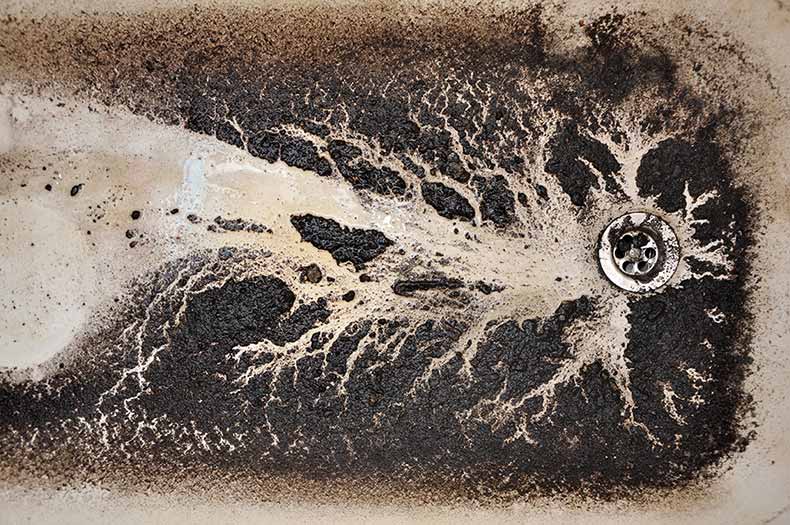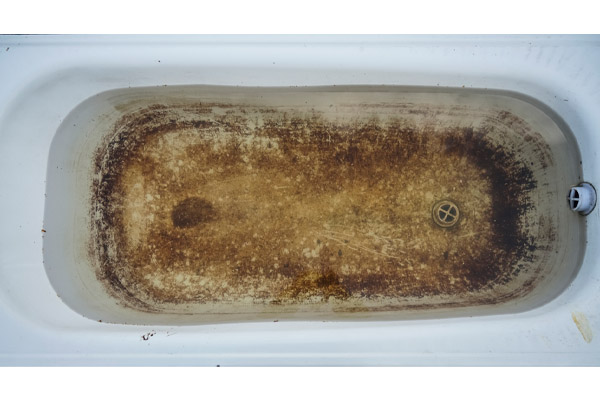Your Comprehensive Guide: Effluent Rising Through the Bathtub
Your Comprehensive Guide: Effluent Rising Through the Bathtub
Blog Article
The author is making a number of good points related to Why is Sewage Backing Up Into My Bathtub? overall in the content further down.

Sewer back-up in the bath tub can be a traumatic and unsanitary problem for any kind of house owner. Not just is it inconvenient, but it also positions serious wellness threats and indicates underlying problems with the plumbing system. Recognizing why sewer is showing up with the bathtub is vital for taking ideal activity to attend to the problem successfully.
Introduction to the Problem
Comprehending the Problem
When sewage starts backing up into the bath tub, it's a clear indication of a problem with the drainage system. The wastewater that should be flowing away from your home is instead finding its back right into your space, which can result in substantial damage and carcinogen.
Potential Causes
Numerous factors can add to sewage back-up in the tub. From clogs in the sewage system line to issues with the plumbing facilities, determining the origin is essential for discovering an option.
Common Reasons for Sewage Backup
Obstructions in the Sewer Line
One of the most common causes of sewer backup is a blockage in the drain line. This can occur as a result of the build-up of debris, oil, or international objects in the pipes, protecting against appropriate circulation and causing sewage to support into your bath tub.
Tree Root Invasion
Tree origins looking for wetness and nutrients can infiltrate sewer lines through little cracks or joints. With time, these origins can grow and broaden, causing substantial damages to the pipes and bring about sewer backup problems.
Aging Infrastructure
Older homes may have dated plumbing systems that are a lot more prone to rust, splits, and degeneration. As pipes age, they come to be extra prone to leaks and blockages, increasing the probability of sewer back-up occurrences.
Heavy Rainfall or Flooding
Throughout durations of heavy rainfall or flooding, the sewer system may come to be overloaded with excess water, triggering backups and overflows. This can result in sewage backing up right into bath tubs and other fixtures inside the home.
Health And Wellness Risks Associated with Sewage Back-up
Contamination of Water Supply
Sewer backup can infect the water system in your home, presenting a severe wellness danger to you and your household. Exposure to polluted water can result in stomach issues, skin infections, and other diseases.
Spread of Illness
Sewage contains hazardous bacteria, infections, and bloodsuckers that can cause a variety of illness, including hepatitis, cholera, and gastroenteritis. Entering into contact with sewer or infected surfaces places you at risk of infection.
Mold and mildew Development
Dampness from sewer back-up can produce ideal conditions for mold and mildew development in your house. Mold and mildew spores can aggravate respiratory troubles and trigger allergic reactions in delicate individuals, making punctual cleanup essential.
Indications of Sewer Back-up
Foul Odors
Unpleasant odors originating from drains or components, specifically in the bathroom, might show sewer back-up problems. These smells are commonly solid and consistent, signifying a problem that needs immediate focus.
Slow Draining Fixtures
Bath tubs, sinks, and commodes that drain gradually or otherwise in any way could be experiencing sewer backup. If several components are influenced simultaneously, it's most likely that the concern stems from a common factor, such as the major sewer line.
Gurgling Sounds
Odd gurgling or bubbling noises coming from drains pipes when water is running elsewhere in your home are indicative of air entraped in the plumbing system. This air buildup can arise from sewage back-up and need to be examined promptly.
Immediate Actions to Take
Turning Off Water System
In case of sewer back-up, it's necessary to turn off the water supply to stop more contamination and damage. Locate the main water shutoff valve in your home and closed it off till the problem can be solved.
Contacting a Specialist Plumber
Managing sewage backup is not a do it yourself task. Call a certified plumber with experience in taking care of sewage-related issues to analyze the circumstance and perform required fixings or clean-ups.
Staying Clear Of Contact with Contaminated Water
Up until the sewer back-up is dealt with, prevent contact with infected water to stop the spread of bacteria and microorganisms. Put on safety gear if you need to remain in the damaged location and clean your hands thoroughly afterward.
Safety nets
Routine Maintenance of Drain Lines
Arrange routine evaluations and upkeep of your sewage system lines to recognize and address possible concerns prior to they intensify into significant issues. This can consist of clearing out debris, inspecting for tree origin invasion, and fixing any type of broken pipes.
Mounting Bayou Shutoffs
Think about installing backwater valves in your plumbing system to stop sewer from flowing back into your home throughout periods of heavy rainfall or flooding. These shutoffs instantly close when water draws back up, protecting your residential property from contamination.
Correct Disposal of Family Waste
Avoid purging anything aside from toilet tissue and human waste down the bathroom to prevent clogs and clogs in the sewer line. Dispose of grease, oil, and other home chemicals effectively to decrease the risk of plumbing issues.
Tidying up After Sewer Back-up
Sanitation Procedures
Extensively decontaminate and disinfect impacted areas after sewage backup to eliminate damaging germs and avoid mold and mildew growth. Use appropriate cleansing items and safety gear to guarantee risk-free and effective cleaning.
Repair of Influenced Areas
Fix any type of damages to flooring, wall surfaces, or fixtures brought on by sewage back-up. Relying on the degree of the damages, you may need to change carpeting, drywall, or other materials to recover your home to its pre-loss problem.
Why is There Sewage Coming Up Through the Bathtub
Sewage in your bathtub is a major problem that can make you want to abandon the bathroom for good. You don’t have to. However, it is important to identify the source of the issue and take the necessary steps to resolve it in order to avoid any health risks and property damage. In this article, we will discuss what could be causing sewage to back up through your bathtub so you can take action quickly and effectively.
The Main Reason For Sewage Backup in The Bathtub
All the sinks and toilets in your home connect to different pipes that lead to the main sewer line. The sewer line then connects to the municipal sewer system. This connection works seamlessly on a daily basis, but there can sometimes be a problem with the main sewer line.
The most common cause of sewage backup is a clogged or blocked main sewer line. The main sewer line can be clogged due to the accumulation of debris, tree roots or grease buildup, or other materials. Another possible cause is a collapsed pipe. When this happens, your toilets and sinks won’t be able to drain properly. This is when sewage starts backing up through the bathtub. If the problem has been occurring for some time now, it might be time to consult with a plumber as there may be more severe damage that needs fixing.
How Can You Tell if it’s Coming From Your Sewer Line?
If you’re experiencing a sewage backup in your bathtub, then you can use a few simple methods to determine if it is coming from the main sewer line. First, try to unclog the tub drain with a plunger or an auger and see if that helps. If not, then inspect all of the drains in your house and check if there is any blockage in them. If some of the other drains are not working fine, then it’s likely the problem is with your main sewer line.
Common Signs of a Clogged Main Sewer Line
If you suspect that your main sewer line is blocked, then there are a few common signs to look out for. Frequent clogs in your home are a sure sign of a clogged sewer line. You can also check for slow drainage from all the plumbing fixtures.
Slow Drains
If you notice that it takes longer for your sinks and toilets to drain, then this could be a sign of a clogged main sewer line.
Frequent Clogs
Another common sign is that your drains or toilets become clogged almost all of the time. If this happens, then it could be a sign that the main sewer line is blocked.
Water Backup
Do you notice water or sewage coming back up from any of the drains in your home? If your answer is yes, you may have a clogged main sewer line.
Sinkholes
If you’ve noticed sinkholes in your yard or overflowing sewage from the ground, you may be facing a blocked sewer line issue.
Your Shower or Sink Makes Gurgling Noises
Have you noticed gurgling noises coming from your sink or shower lately? These are typically signs of a blocked sewer line and should be checked out immediately.
How to Prevent a Main Sewer Line Clog
Once you’ve identified that your main sewer line is clogged, it’s important to take steps to prevent it from happening again. The best way to do this is to avoid putting any solid material that can clog the drain, such as grease and other debris. You should also be mindful of what you flush down your toilet. In addition, you should schedule regular maintenance for your main sewer line. This will help keep it clear and free from clogs or backups.
What Should You do if You Notice Sewage Backing up Through The Bathtub?
If you’ve noticed sewage backing up through the bathtub, then it is important to call a professional plumber immediately. A plumber can inspect the situation and determine what the cause is, such as a blocked main sewer line. They will also be able to advise you on how best to fix the issue. In some cases, a simple drain cleaning may be all that is needed.
However, if the blockage is severe, then your plumber may need to use more advanced methods to clear the blockage.
No matter what, it is important to always call a professional plumber if you experience any kind of sewage backup. They will be able to assess the situation and provide you with a solution that is best for your home.
https://baylorinc.com/blog/why-is-there-sewage-coming-up-through-the-bathtub/

I found that review on Why sewage is coming up through your bathtub while looking around the internet. Are you aware of somebody who is truly interested in the subject? Please feel free to share it. I am grateful for being here. Revisit us soon.
Book 24/7
Report this page